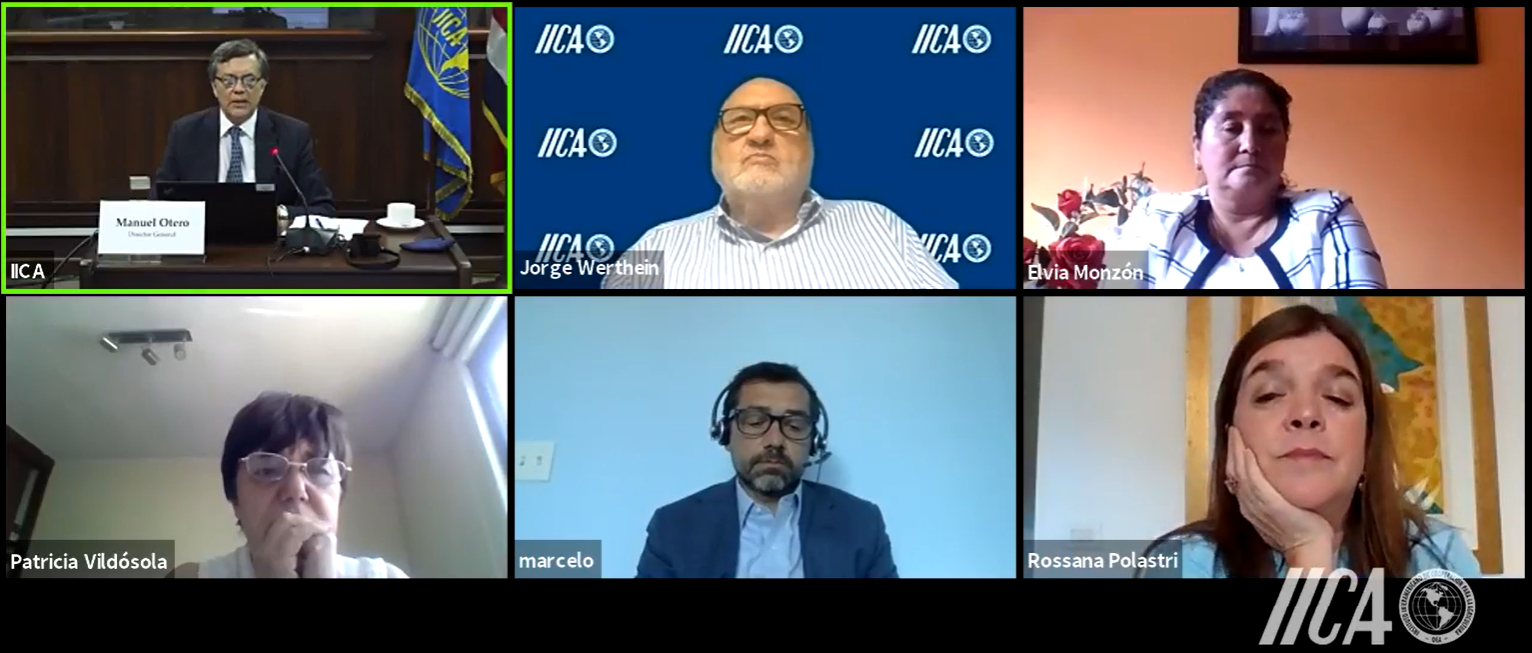This was on the occasion of the commemoration of International Day of Rural Women, organized by IICA, with the support and participation of the IDB, IFAD and the ministers of Agriculture of Barbados and Brazil.

San Jose, 22 October 2020 (IICA) – Issuing a fervent appeal for the formulation of policies and execution of effective projects to bridge the technological gender gaps, increase connectivity and create employment in rural areas, the Inter-American Institute for Cooperation on Agriculture (IICA) celebrated International Day of Rural Women, in collaboration with the Inter-American Development Bank (IDB), the International Fund for Agricultural Development (IFAD) and the Ministries of Agriculture of Barbados and Brazil.
In light of the devastating effects of the pandemic that has buffeted the global economy and decimated millions of jobs, representatives of governments and international organizations have emphasized the need to boost rural connectivity, given the economic, social and production potential of these regions in the Americas.
Rossana Polastri, Director for Latin America and the Caribbean at IFAD, stressed that, “In developing countries, women perform 40% of the work in rural areas; however, they lack support. Rural women with adequate access to internet connectivity would be afforded immense opportunities and thus we cannot afford to lag behind in these digitalization processes”.
Marcelo Cabrol, Social Sector Manager at the IDB also participated in the commemoration ceremony, recalling that in his 25 years in the financial organization, the most successful and impactful projects in rural areas had been undertaken with women.
“We must prioritize rural areas, because we know that of the 35 million jobs that have been lost due to the pandemic, 60% were held by women. By empowering them with digital capacities, we are creating an agenda for the future”, said Cabrol, emphasizing IICA’s capacity for execution and its areas of specialization.
“This moment is critical to turn the spotlight on the growing challenges that women face, with digitalization being one of the primary ones”, said Tereza Cristina, Brazil’s Minister of Agriculture, Livestock and Food Supply, who spoke of her Ministry’s joint effort with IICA to provide training and technical support to family farmers, via mobiles phones, in collaboration with the organization, Precision Agriculture for Development (PAD).
Indar Weir, Minister of Agriculture and Food Security of Barbados pointed out that, “In many Caribbean countries, most of the terrain is rural and women play a fundamental in development”. He urged participants to be mindful of “the role that women can play and the fact that many will lack opportunities if they are not made accessible. We must provide training and funding, while offering opportunities to facilitate their active participation in business”.
The commemoration also included a presentation of the study, “Digital Rural Gender Divide in Latin America and the Caribbean”, which was prepared by a team, headed by Valentina Rotondi, a researcher from the University of Oxford.
Rotondi, a sociologist from Argentina, remarked that, “The study demonstrates that even the most basic telephone can improve the lives of countless people throughout the planet. By accessing information, women can improve their own health and that of their families, and this can pave the way for sustainable development
“The study is particularly important during this time of the Covid-19 pandemic, which has accelerated changes in our production processes and in trade networks for all types of products, such as foods and other goods supplied by rural areas”, said the study coordinator.
According to Manuel Otero, the Director General of IICA, “Connectivity contributes to transparency, inclusion and rural retention. It is vital that we prompt an urgent public discussion to quickly generate public policies to improve the standard of living of these women and their mass access to technology”.
Revisit the commemoration ceremony on IICA’s Facebook page – available in Spanish, English and Portuguese.
More information:
Institutional Communication Division
comunicacion.institucional@iica.int











